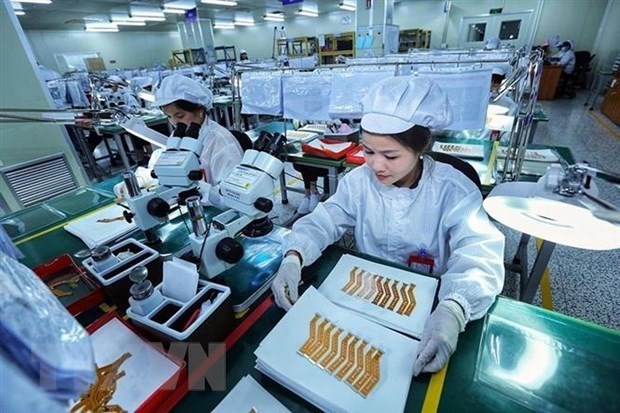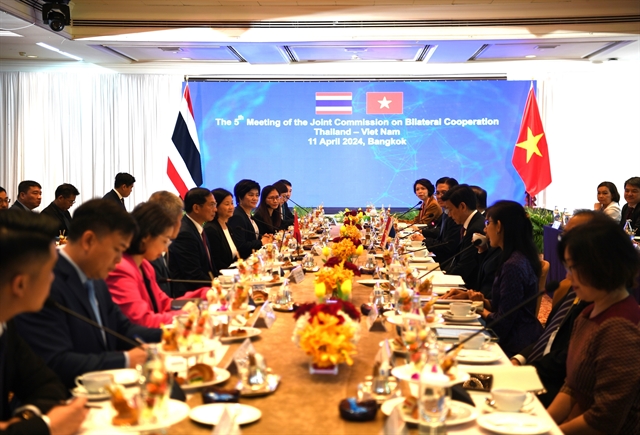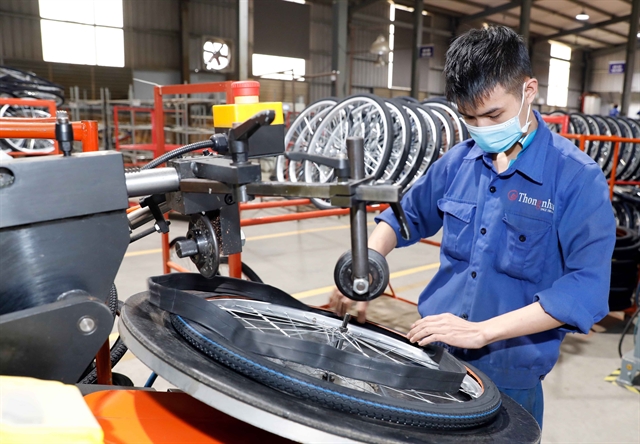 Economy
Economy


|
| Johan Langerock, Oxfam Tax Policies expert, suggests Việt Nam should eliminate tax incentives to build a fairer market. — VNS Photo Minh Hương. |
HÀ NỘI — Tax incentives had led to a decrease in State revenue in Việt Nam over recent years, said Nguyễn Đức Thành, director of the Việt Nam Institute for Economic and Policy Research (VEPR), at a conference yesterday in Hà Nội.
The conference, themed "Towards a fair tax system", pointed out that although Việt Nam had posted impressive economic growth recently with a ten -year high GDP of 7.1 per cent last year and possible higher growth this year, Việt Nam’s extraordinary economic track record had not been accompanied by a similar pathway in tax revenues.
Though tax incentive policies had contributed to the country’s economic growth, boosting investment, the conference thought it was time for Việt Nam to rationalise such incentives for big companies as lowering corporate income tax rates and the existence of many tax incentives for foreign investors had decreased tax revenues.
“In the long term this could harm the sustainability of the country,” Oxfam’s tax policies expert Johan Langerock told Viet Nam News.
According to data given at the conference, budget revenue decreased from 27.3 per cent of GDP in 2010 to 23.7 per cent in 2016. Revenue from corporate income tax decreased sharply, from 6.9 per cent of GDP in 2010 to 4.3 per cent in 2017.
Regarding the fact that tax incentives had attracted foreign investment to Việt Nam, VEPR director Thành told Việt Nam News: “FDI policies should be reconsidered.”
“Enterprises that only arrive in Việt Nam to enjoy tax incentives were not the outstanding ones. Outstanding enterprises want transparent tax policies for their investments, not just the incentives,” he said.
Thành calculated that from 2012-16, Việt Nam's total corporate income tax incentives for businesses accounted for 7 per cent of the total state budget revenue, 1.4 times higher than highest budget spending on health in 2012
Agreeing with Thành, Langerock told Viet Nam News: “The Vietnamese Government gives presents for foreign investors, who will not stay in Việt Nam. So it is better to give such presents to local companies, especially the local SMEs.”
Langerock added that certain incentives for local SMEs could help strengthen the economy in the long term as he believed local SMEs had big potential for development and would play an import role in the region in the future.
While Vietnamese authorities have not been paying enough attention to analyzing the efficiency and effectiveness of its tax expenditure policies, a study from the Organisation for Economic Co-operation and Development OECD found the social cost of tax expenditures (meaning those given as tax incentives) in Việt Nam was “too large to be further ignored”. According to the OECD, the revenue loss was estimated at 1 per cent of the GDP, meaning a staggering amount of over VNĐ50 trillion (US$2.15 billion).
According to a recent survey by Grant Thornton on private equity prospects in Việt Nam, 69 per cent considered rising disposal income and middle-income status the most important factors for investing in Việt Nam; 60 per cent considered high and stable economic growth and only 13 per cent considered Government incentives and subsidies as the most important factor.
The Oxfam expert said Việt Nam could get rid of large tax incentives without harming its growth or competitiveness.
Langerock said some ASEAN countries were pushing each other into an aggressive race to the lowest corporate taxes. As an example, he said Singapore had created a lot of tax incentives for international enterprises, making itself a “tax haven” that troubled neighbouring countries with unfair competition.
He said as the next ASEAN chairman in 2020, Viet Nam should act to stop tax competition, suggesting Viet Nam should raise awareness and debate the issue of tax competition and tax incentives at a regional level. — VNS









